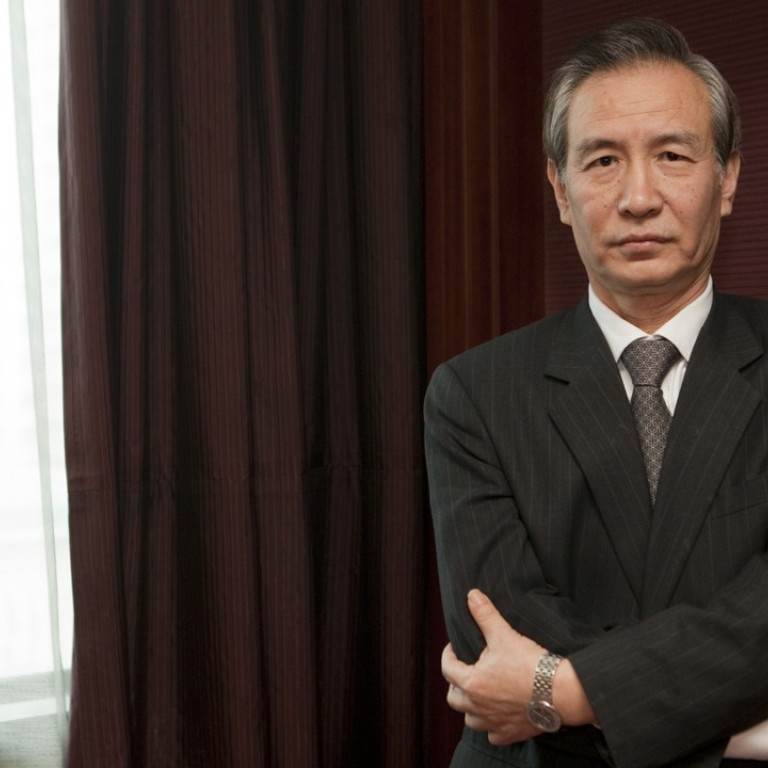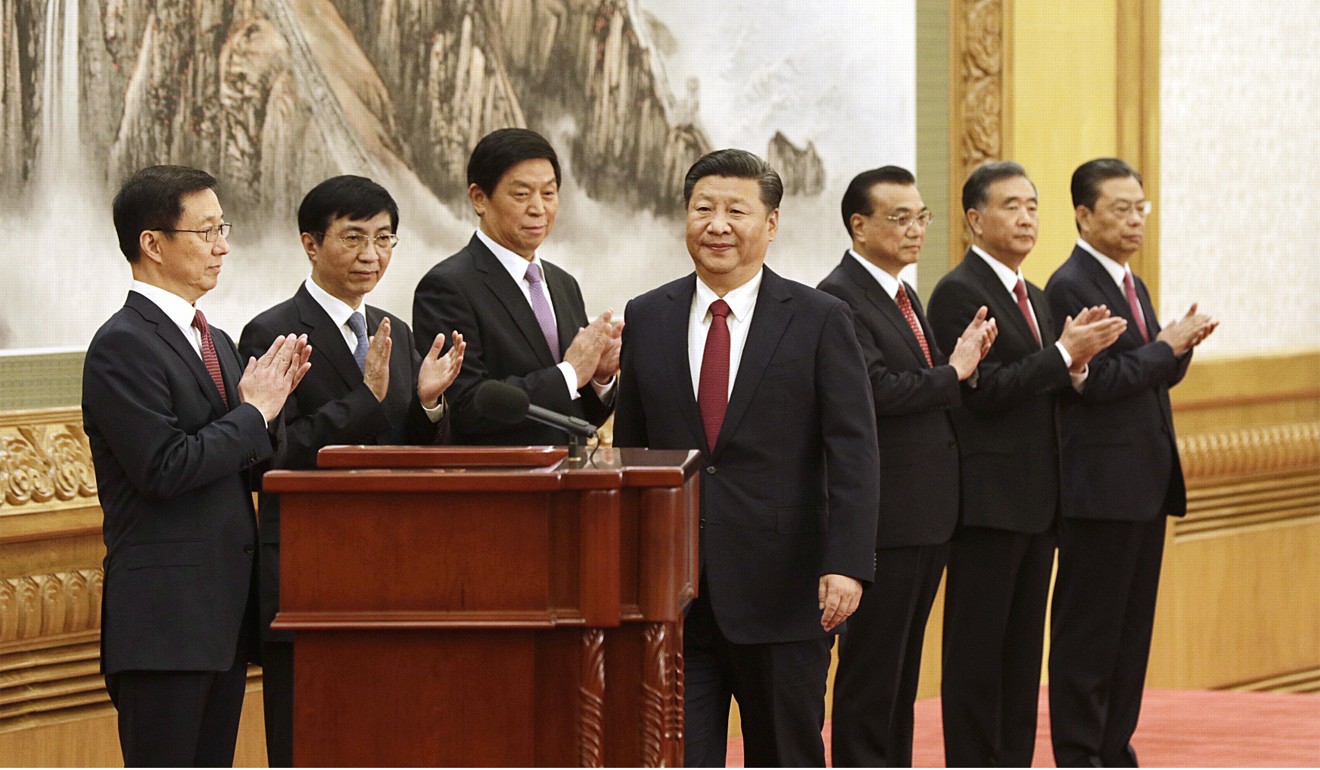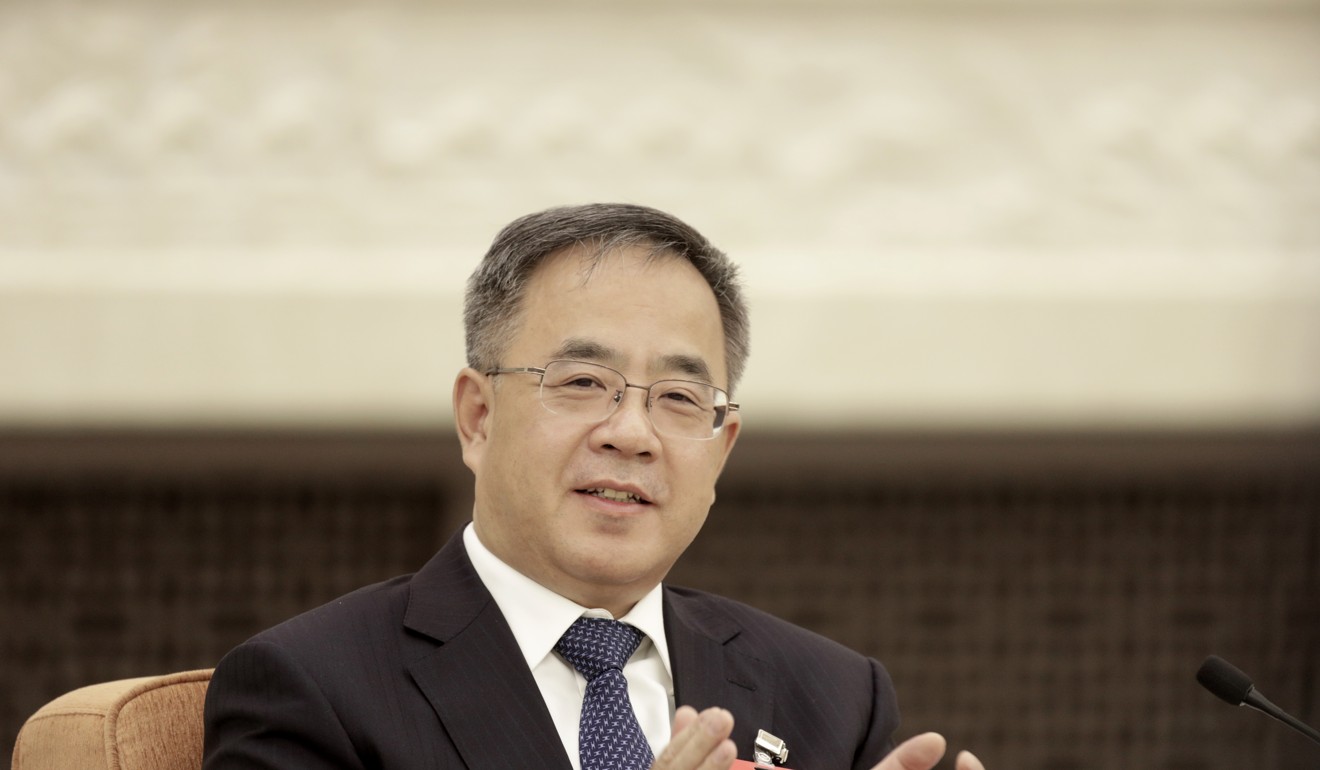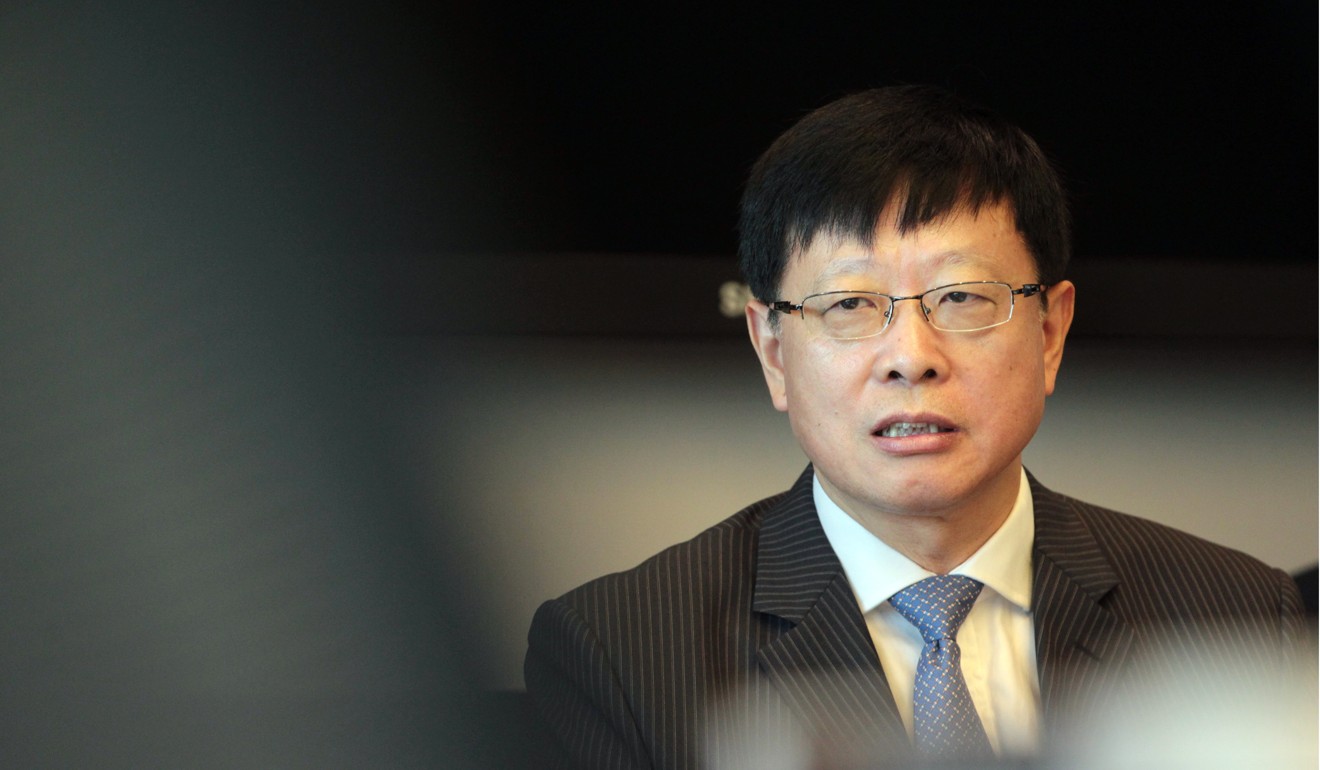
What team will Xi Jinping choose to steer world’s second-largest economy into the future?
Harvard-trained economist Liu He tipped for promotion to vice-premier role as leader prepares for challenge of another five years in charge of world’s most populous nation
President Xi Jinping’s key economic adviser Liu He is likely to be promoted to vice-premier in March, as Xi assembles a new team to steer the world’s second largest economy over the next five years, according to sources with knowledge of the arrangement.
After spending his first term amassing unprecedented power through a much trumpeted anti-corruption crusade, Xi is now under increasing pressure to tackle the daunting challenges facing the US$12 trillion economy that range from ballooning debts and rampant excess capacity to an inefficient state-owned sector.
In the weeks following the ruling Communist Party’s five-yearly leadership shake-up in late October, all eyes were on who would take up the key economic policy roles when the new cabinet is unveiled at the annual legislative meeting next March.

In the State Council, Premier Li Keqiang is set to stay on after retaining a seat on the Politburo’s supreme Standing Committee, but all of his four deputies are due to retire or move on.
Sources said Liu, who now sits on the 25-strong Politburo, is expected to fill Ma Kai’s role in charge of finance.
Liu is also likely to take over Ma’s role at the helm of a top-level committee set up in November with the task of fending off threats of a financial meltdown stemming from the country’s excessive credit and debt, plus lax market oversight.
Han Zheng, the former Shanghai party chief who joined Li on the seven-seat Standing Committee in October, will take on the role of first-ranking vice-premier, also known as the executive vice-premier, currently held by Zhang Gaoli.
Two other Politburo members, Sun Chunlan and Hu Chunhua, are in line to fill the remaining vice-premier positions. Sun is likely replace retiring vice-premier Liu Yandong, while Hu is expected to succeed Wang Yang, who has been elevated into the Standing Committee, according to sources.

Wang, who was Hu’s predecessor as Guangdong party chief before becoming a vice-premier overseeing agriculture, commerce and trade ties with the US, is known for his liberal-leaning stance on economic reform.
In comparison, Hu has appeared much more low-key and cautious, although he did continue with many of Wang’s economic policies, analysts said.
“My observation of Hu is that he will be less of a maverick on reform than Wang,” said James Zimmerman, managing partner of international law firm Sheppard Mullin’s Beijing office and a former chairman of the American Chamber of Commerce in China.
In the Chinese cabinet, the division of labour between its four vice-premiers can differ from term to term, corresponding with their own qualifications and experience.

Their portfolios will not be announced until the premier convenes his first full cabinet meeting.
In the run-up to the party’s leadership reshuffle, Liu had been rumoured to be in line for the role of the party’s principal theorist, taking over from pre-eminent ideologist Wang Huning as head of the Central Policy Research Office.
But now calls for Liu to be named vice-premier are intensifying, sources said. The 65-year-old Harvard-trained economist is known as the mastermind behind Xi’s “supply side reform”, a hallmark economic policy prescribed to assist China’s painful economic restructuring.
Apart from cutting overcapacity, another key feature of the multi-pronged reform is to tackle the mounting debts that saddle local governments and the bad loans on the books of commercial banks. As a vice-premier, Liu would be able to push for the reforms despite his previous lack of administrative experiences.
Liu has kept a low profile until now and holds a modest title incommensurate with his influence over policy direction. He currently heads the general office of the party’s Central Leading Small Group for Financial and Economic Affairs and serves as a vice-chairman in the National Development and Reform Commission, a top economic planning body.
He is also widely believed to be the mysterious “authoritative person” quoted in an 2016 People’s Daily article, who issued a stark warning of the risk of a financial crisis triggered by soaring debt levels.
Being appointed a vice-premier will allow Liu to go from working behind the scenes to take a front-stage role in managing the economy, but analysts said his appointment would be unlikely to bring about any significant changes in policy.
“I don’t think these men were chosen because of the likelihood that their new ideas or their force of personality will change the Chinese economy, but essentially to strengthen the direction in which it is already travelling,” said Christopher Balding, an economist at Peking University HSBC Business School.
“If anything, in the past five years, there has been a reverse on any reform activity in the [direction of] liberalisation.”
Zimmerman from Sheppard Mullin concurred. He said the line-up signalled continuity in economic policy.
“The appointment … generally reflects that the path forward will emphasise steady, stable growth. We will not see much movement toward radical economic reform, or greater market access for foreign investors. The path forward is pretty much more of the same,” Zimmerman said.
A rung below the vice-premiers, Wang Yong is expected to stay put in his post as a state councillor, overseeing the state-owned sector. Finance Minister Xiao Jie is in line for promotion as a new state councillor, as well as the secretary general of the cabinet, according to sources.
Xiao had already been named as deputysecretary general last month, and taken over the party posts held by the currentsecretary general, Yang Jing.
At the party’s leadership shake-up in October, Yang surprisingly failed to retain his seat on the Central Committee – the largest of the party’s ruling bodies.
Once considered a contender for vice-premier, the 64-year-old ethnic Mongolian is close to Premier Li Keqiang, his boss in the State Council, according to a source who knows Yang personally.
“The relations between Yang and his boss Li are extraordinarily good,” the source said.
Yang worked directly under Li when Li was the first secretary of the Communist Youth League and Yang the league’s top official in Inner Mongolia between 1993 and 1996.
Ding Xuedong, a financial technocrat who once chaired the country’s sovereign wealth fund, the China Investment Corporation, is tipped to fill the vacancy left by Xiao in the finance ministry.

